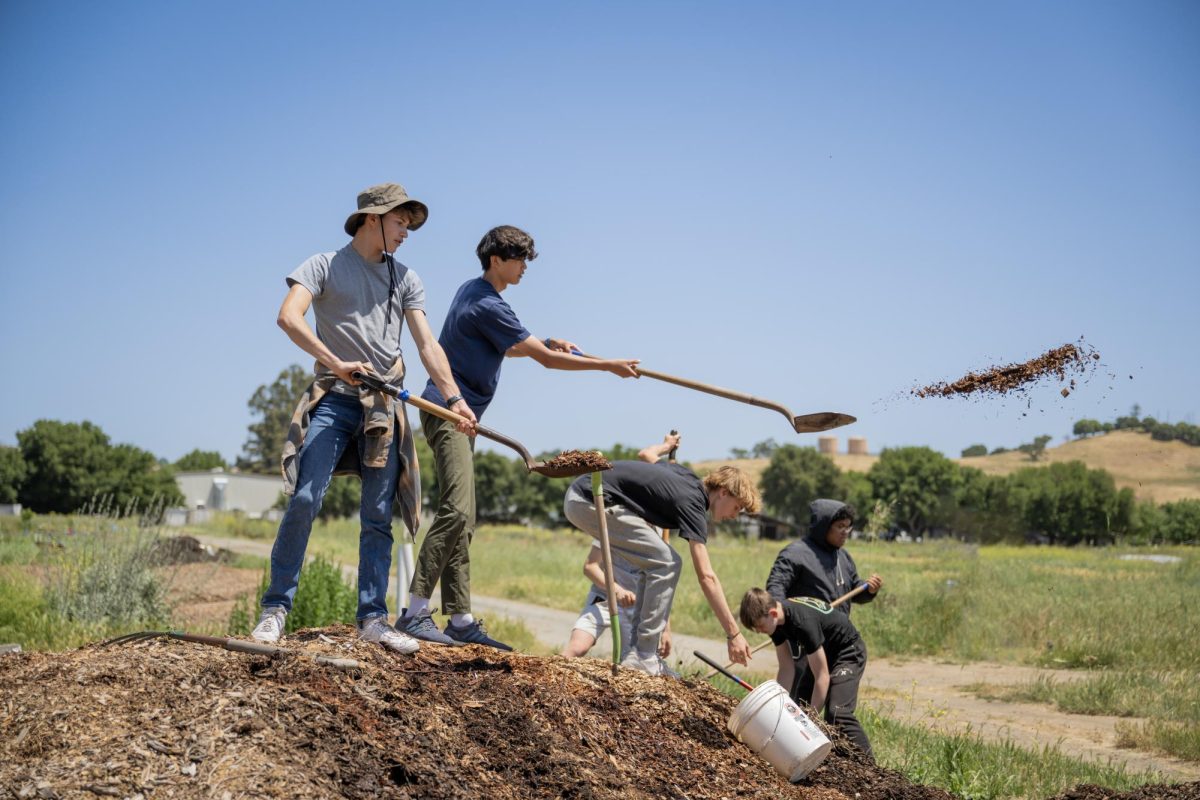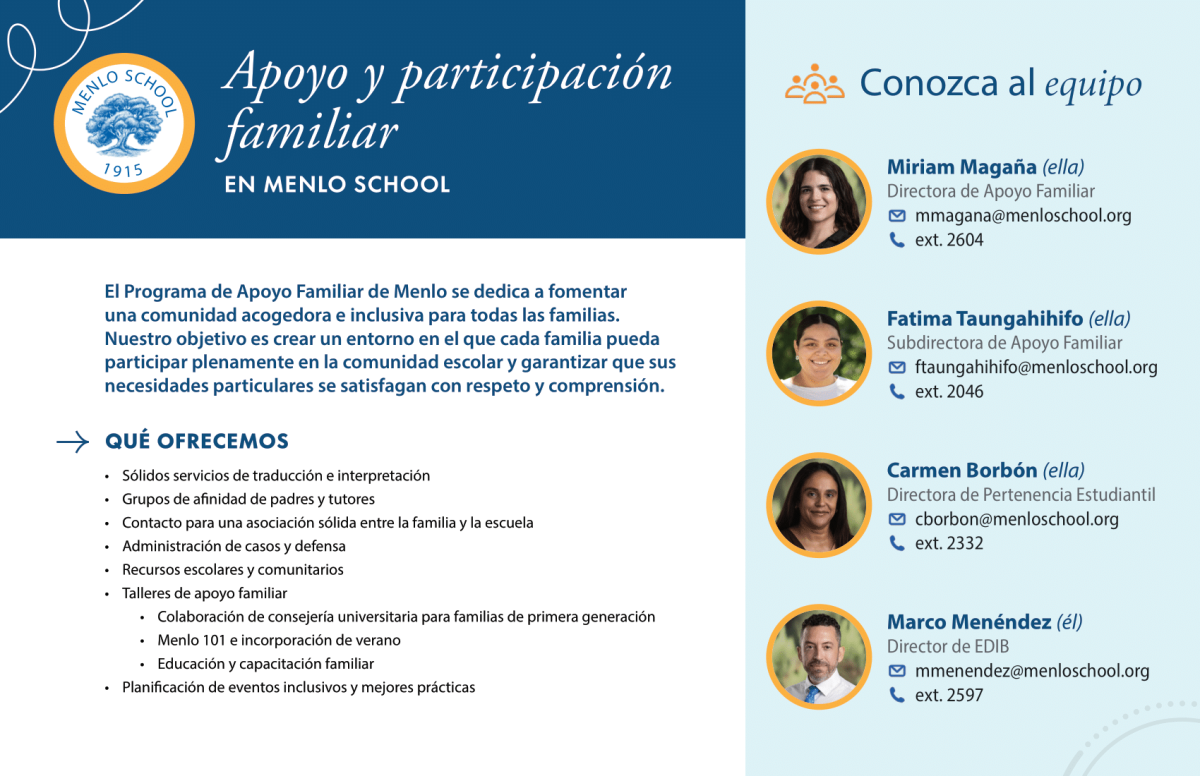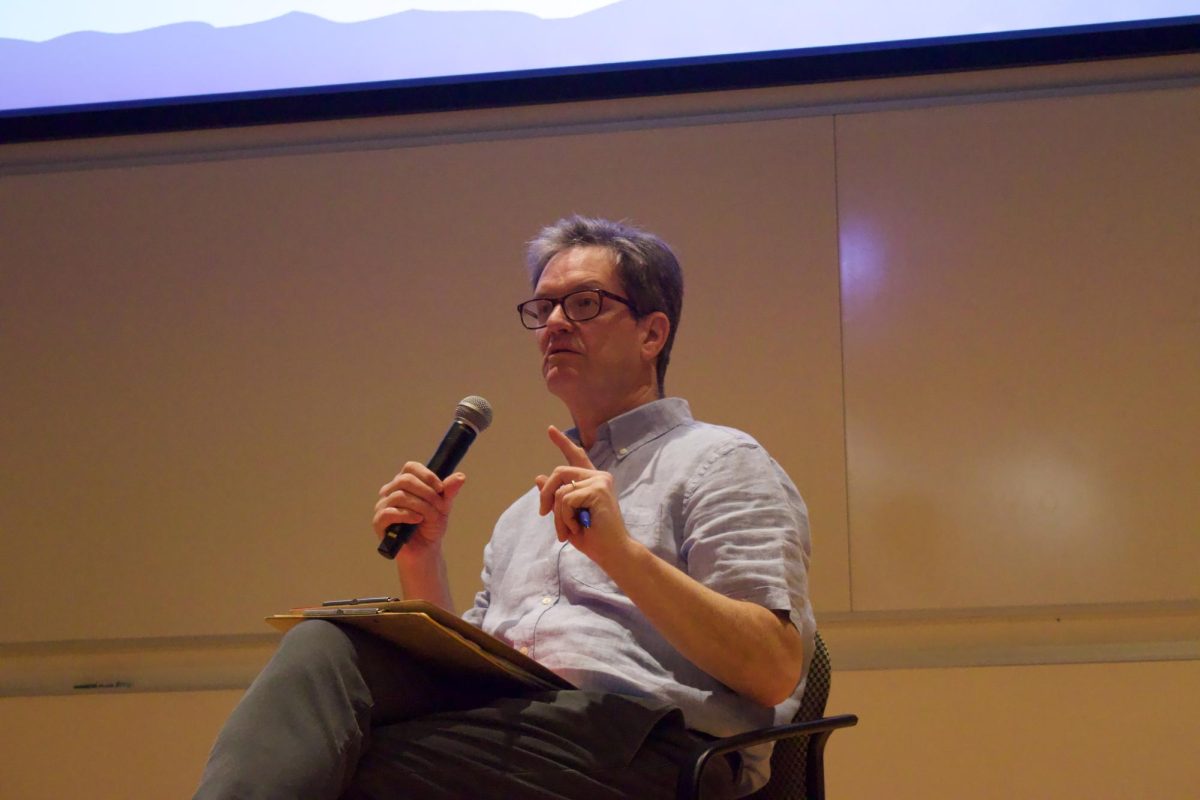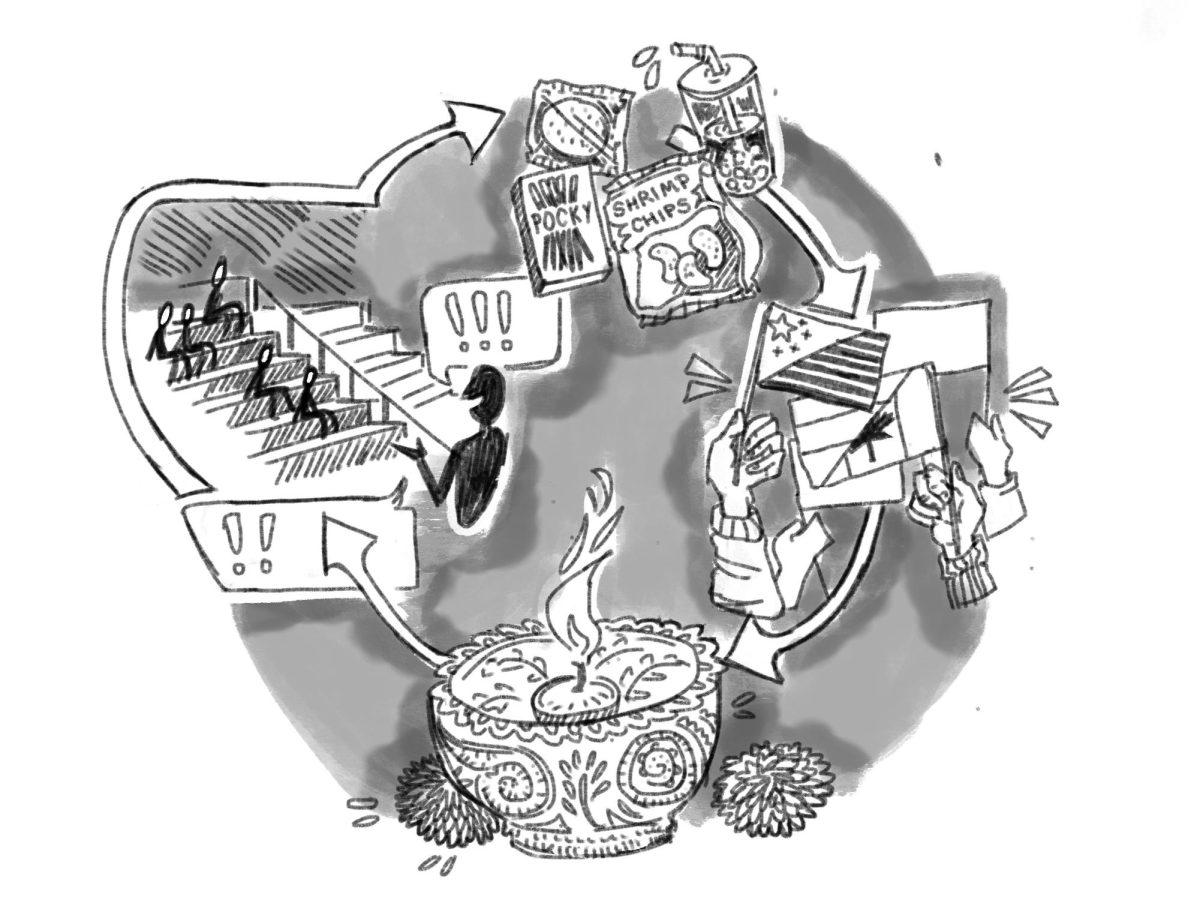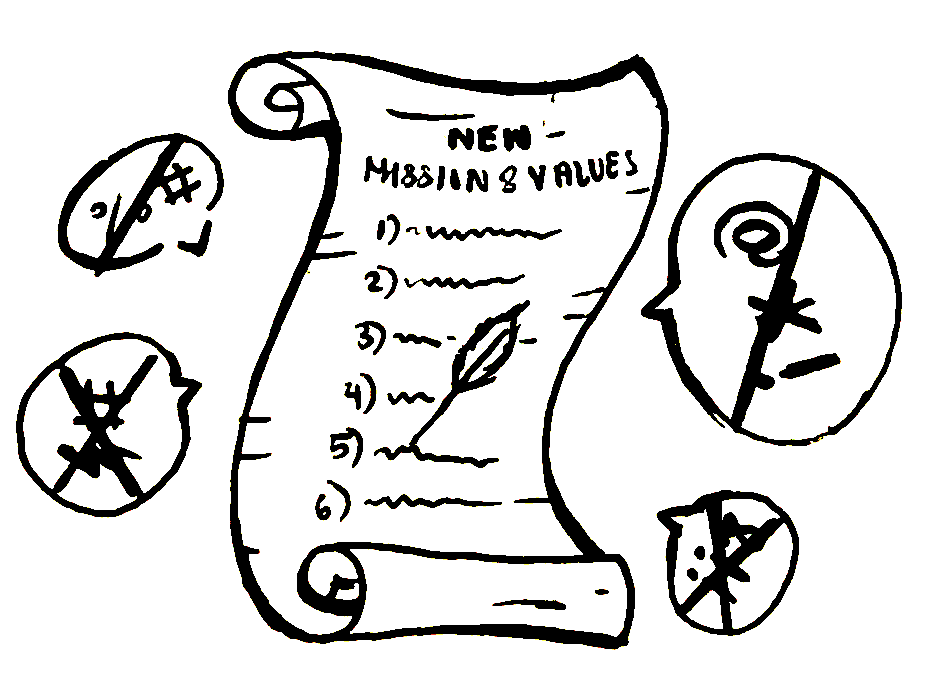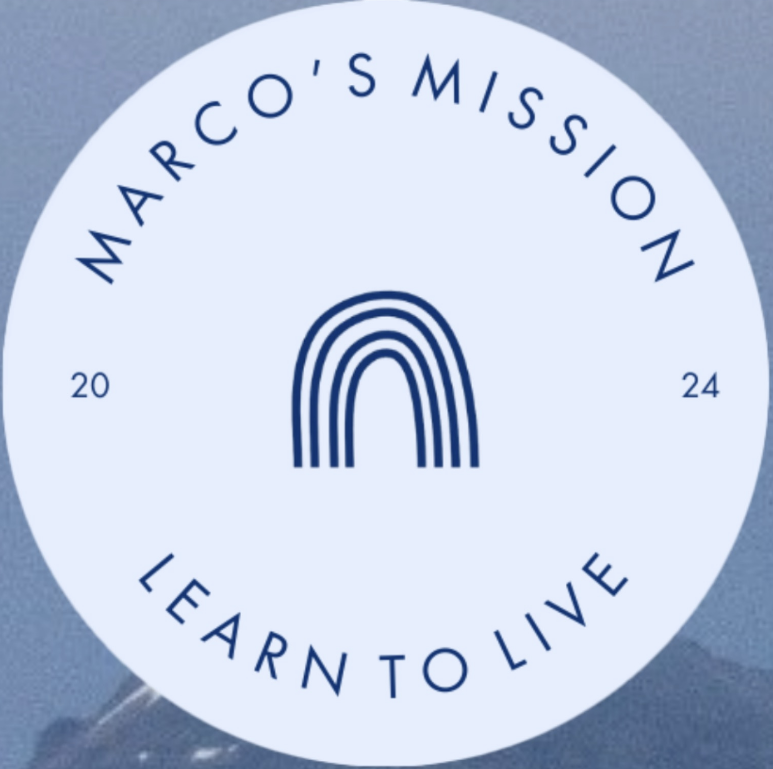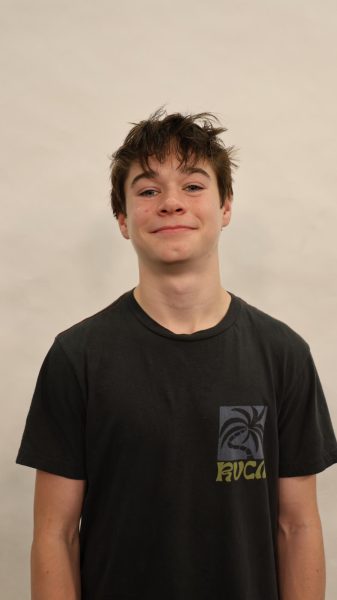Starting in the 2025 school year, Menlo will introduce an innovative experiential learning program for juniors called Catalyst. This semester-long initiative will include traditional junior classes such as English, Math, History and Biology. However, concepts typically taught in these classes will incorporate a real-world problem-solving component. A seminar in leadership and an applied engineering course will round out the required curriculum.
Director of Academic Innovation Maren Wolf, who is leading the program, was inspired by other forms of experiential learning that Menlo offers when she first proposed the idea over a year ago. “Whether it’s Borderlands or MTerm or the [Applied Science Research] balloon launch, something that makes Menlo so special is its variety of experiential learning opportunities where you can see how your learning manifests in the real world,” Wolf said. “But [these opportunities] are often constrained by the block schedule, so I thought about what we could achieve if we removed that constraint.”
After the program’s initial proposition, an extensive process ensued to turn the idea into the reality that it has become. Last year, the sophomore, junior and senior classes were surveyed on the general concept of the program and whether or not they thought that future students would be interested.
Along with surveying the students, Wolf spoke with numerous faculty members, school board members and parents and personally visited similar programs unaffiliated with Menlo, such as the School for Ethics and Global Leadership (SEGL). “A ton of research and conversation at all levels went into refining the program and making it what it is today,” Wolf said.
During a class meeting on Dec. 2, Wolf introduced the program to current sophomores. “I think it’s a really cool and innovative idea,” sophomore Bodhi Compton said. “My main concern is that it could be difficult to take the program in the first semester and then transition back to the typical curriculum.”
Wolf considered this potential concern when designing the program. “Like a lot of schools, Menlo sends juniors to semester-away programs all the time and so we know what it means to coordinate academics. Those programs aren’t even affiliated with Menlo, so I’m confident that alignment won’t be an issue,” she said.
The program will feature a combination of current Menlo faculty and newly hired teachers specifically selected to teach the curriculum. The teachers will collaborate with one another to create the interdisciplinary structure of the Catalyst program. Furthermore, Catalyst staff will collaborate with other Menlo teachers to ensure that Catalyst students stay up to date with other Menlo students.
“If anything, I think Catalyst will put students ahead of the game since they’ll have had an opportunity to think outside of the box and learn in different ways,” Wolf said.
Sophomore Kaio Deeter expressed a sentiment of curiosity and uncertainty about the program, similar to Compton. “I think it’s a really unique way to learn in the field rather than in the classroom, but personally I’m a little hesitant to try it since the class options aren’t that diverse,” he said.
Despite the Catalyst program’s focus on flexibility and breaking away from rigid structures, students won’t have much choice about their classes. Wolf acknowledged this loss of flexibility as one of the key drawbacks of the program. “Signing on for Catalyst means that you’re signing on for the classes in the program. What you gain is the benefit of the teachers and courses all working together, with the tradeoff that you can’t add non-Catalyst electives to your schedule,” she said. The program will require six classes with an optional seventh class for world language, including the same core classes all other juniors take, but with an emphasis on problem-solving and real-world applications. Catalyst students will also be required to take two other classes only available through the program.
Students will take the course Catalyst Leadership Seminar: Igniting Change (Honors), which will focus on the study of leaders and will often feature guest speakers and alumni. They will also take a course called Catalyst Applied Science: Engineering for Extremes. In this class, students will work alongside frontline leaders like fire chiefs to analyze current problems and work towards finding solutions.
“Catalyst students will need to be resilient, adventurous and tenacious enough to work with complex issues that don’t have a current solution and are not going to be solved by the end of the semester. But deepening how you think about these issues today will help you to tackle them — and others like them — as adults,” Wolf said.
Each Catalyst semester will be available to a maximum of 18 students. Interested rising juniors will need to apply by Feb. 1, 2025, and interview with Wolf and Upper School Director John Schafer. Students will receive admission decisions by March 3, 2025, which are non-binding.
Dean of Teaching and Learning Bridgett Longust, who helped engineer the program, described the type of student she thinks would thrive in it. “We’re looking for pioneers. Students who apply will shape the program from its inception. It’s such an enticing opportunity to be a leader and to put your stamp on Menlo forever,” she said.


